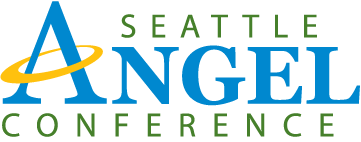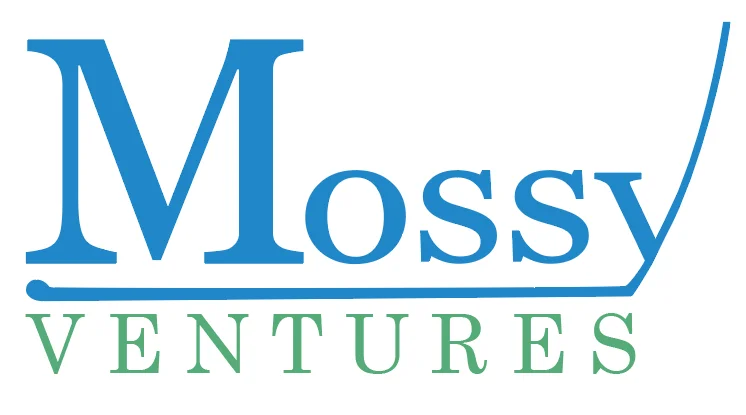If your startup is raising an early seed round this spring, the Seattle Angel Conference is a perfect springboard to meet investors and fine-tune your message. And offers a chance to win $200k investment!
The blog-series “Startup People of Seattle” introduces some of the key personas in the ecosystem to learn more about what they are doing, to share their thoughts and ideas, and to promote networking.

In our 16th interview, meet Peter Chee:
“I think one of the biggest problems that people face after quitting their job at Amazon, Microsoft, or Google is that they don’t have a network in the startup-world. So, they need to be connected to the right people and resources.”
Peter Chee is founder & CEO of Thinkspace. He is fascinated by the personality of entrepreneurs and enjoys being surrounded by people who do things that have never been done before.
https://www.linkedin.com/in/pchee/
Q: Could you first talk some about your background and how you got into startups?
A: I have been surrounded with entrepreneurship ever since I grew up. After graduating from the University of Washington with a degree in MIS I was working for a startup company called Starwave. That was my favorite professional experience throughout all my career. I especially enjoyed working with so many innovative people. This is also what inspired me to found “thinkspace.” Since I love the mindset and energy of entrepreneurs, I wanted to be surrounded by those people all the time.
Q: Could you talk some more about the founding story of thinkspace?
A: When I started thinkspace eleven years ago, very few coworking spaces existed in Seattle. Only one other coworking space, Office Normads, launched six months before me. There were very few incubators at that point even. For me, it was always about being around people who do things that have never been done before. My preference was to work with people in technology simply because that was my background. So, therefore thinkspace focuses on tech startups.
Q: You have also been involved as a judge in a business plan competition at the University of Washington. Could you share your thoughts on student entrepreneurship?
A: Being a graduate of the University of Washington, I always enjoy having the opportunity to give back and help current students with their learning. Therefore, I spent time not only judging, but mainly mentoring students who were coming up with startup ideas. Aside of sharing my perspective and feedback with them, I also helped them with connections to move their ideas forward.
I think student entrepreneurship is a fantastic learning opportunity for students. It also provides them with opportunities to network, and it’s a new experience – Their school is a safe environment to try entrepreneurship without having anything to lose.
Q: What would you say are the differences between co-working spaces and incubators?
A: I think there are huge differences. Incubators are typically investing money into the startups and their programs are typically only 3-12 months long.
We, as a tech-focused coworking space on the other hand are here to support companies for as long as they feel it is helpful to them. We don’t kick them out. We also don’t invest money.
Q: You say, “supporting the companies.” How exactly does thinkspace support member-companies?
A: I think one of the biggest problems that people face after quitting their job at Amazon, Microsoft, or Google is that they don’t have a network in the startup-world. So, they need to be connected to the right people and resources. What we offer startups at thinkspace is numerous connections. We always know good resources and people to talk to whatever problem founders might be facing.
We also provide founders with flexible, monthly space for their company. For them this means they don’t need to sign a long-term leasing contract. If a company doesn’t know whether they will survive the next year, they are better off without making any longer-term contracts. So, we provide value to them because we eliminate some risk.
Aside from all that, thinkspace offers office hours during which members can meet different kind of experts and ask for their input and advise.
Q: How would you recommend someone to stay informed about what is going on in Seattle’s startup ecosystem?
A: One email I have in my inbox every Monday is Seattle Startup Digest. I think this is a helpful resource and a good starting point for people who want to get involved in the community. I also want to recommend Startup Haven Seattle Poker 2.0 which is run by Bob Crimmins. I think this is the best startup event in Seattle. If you want to meet other founders, this is the place to go.
Q: You have been involved with startups for such a long time now, what would you say makes a startup interesting to you?
A: I think most interesting are the founders themselves.
Q: What are attributes of a successful entrepreneur, and what is some advice you’d give a founder?
Successful entrepreneurs are the ones who are open to learning and open to receiving feedback.
I commonly see very smart founders who have strong technical and coding skills, but they underestimate the sales and marketing side. Also, marketing in startups under very limited budget is a whole other story than marketing in a big, established company. This needs to be considered when making a hiring decision for example. Someone who ran a whole marketing department before, might not be a great fit for a startup role as the conditions are totally different.
Another mistake to avoid is putting too much energy into technology and coming up with a solution too soon. Founders are fascinated by solving a technological problem and creating something because this is what they enjoy doing. What they should do first though is talking to customers and figuring out what their needs are and what they are willing to pay for. I think customer validation is much more important than the technological aspect.
Here are some things I learned from this interview:
In the interview Peter mentioned some resources and organizations, find out more about them here:
About Seattle Angel:
A strong ecosystem creates an environment that allows startups to thrive. Seattle Angel’s goal is to strengthen Seattle’s startup ecosystem by increasing the access to funding for entrepreneurs to push their ideas further.

About the author: Sven Goepfrich
https://www.linkedin.com/in/svengoepfrich/
Sven Goepfrich is currently finishing his MBA in Syracuse. His studies focus on technology, innovation and entrepreneurship. At his school, he is working for the department of finance. Sven was actively interning with the Seattle Angel Conference in summer 2019. He is currently looking for full-time career opportunities in this field.
If your startup is raising an early seed round this spring, the Seattle Angel Conference is a perfect springboard to meet investors and fine-tune your message. And offers a chance to win $200k investment!
The best way to start early stage investing is to learn by doing. The Seattle Angel Conference is built for just that.
Seattle Angel Conference (SAC), a production of Mossy Ventures, announces the SAC 22 winners of the business competition investor education program. Seattle Angel Conference (SAC), a production of Mossy Ventures, announces the SAC 22 winners who have participated in an progressive elimination program that started with 80+ early stage startups. On November 16, six finalists […]

